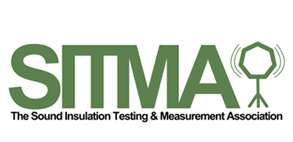Offices Nationwide

Sound Levels
Decibels (dB) are most commonly used as a measure of sound level, but they are also used in electronics, signals and communications.
Sound is a variation in pressure detectable by the ear, whereas noise is undesired sound, or any sound which causes disturbance or annoyance to the recipient. The unit used to describe sound wave intensity is the bel, named after the inventor Alexander Graham Bell. The human ear is sensitive enough to detect changes of as little as 1/10 of a bel, and so sound intensity levels are described in decibels.
A sound wave’s intensity is the average amount of energy transmitted per unit time through a unit area in a specified direction. The sound intensity level, I, in decibels is 10 times the logarithm of the ratio of the intensity of a sound wave to a reference intensity.



How loud is too loud?
Continued exposure to noise above 85 dBA (adjusted decibels) over time will cause hearing loss. The volume (dBA) and the length of exposure to the sound will tell you how harmful the noise is.
In general, the louder the noise, the less time required before hearing loss will occur.



Noise Disturbance
Building acoustics can help to mitigate the effects of noise disturbance which can have negative effects on health, well-being and general quality of life.
The Noise Policy Statement for England (NPSE) defines noise pollution as:
- Environmental noise: which includes noise from transportation sources. - Neighbour noise: which includes noise from inside and outside buildings. - Neighbourhood noise: which includes noise arising from industrial and entertainment premises, trade and businesses, construction sites and noise in the street.
This can be an important consideration for the location, design and construction of new developments.



Sound Insulation
Two parameters are used to describe the sound insulation of a partition, Dw and Rw. Dw represents the sound insulation between rooms on-site. Since these figures describe the fnal site requirements, Dw levels are specified by clients and Building Regulations. Rw represents the lab tested sound insulation of an element making up a partition wall/floor type. Due to flanking and other factors, lab rated sound reduction levels will not be achieved on-site. Conventionally, there is a 5 to 10 dB reduction between a Rw lab tested figure and an on-site Dw figure. The conversion between Dw and Rw is relatively complex and takes into consideration receiver room volume, receiver room reverberation times and the area of the separating partition. The conversion between Rw and Dw should always be calculated.


Copyright 2025 E2 Specialist Consultants Limited
Company No. 06728970

































